Luiz Carlos Felix Ribeiro
A Layer-Wise Information Reinforcement Approach to Improve Learning in Deep Belief Networks
Jan 17, 2021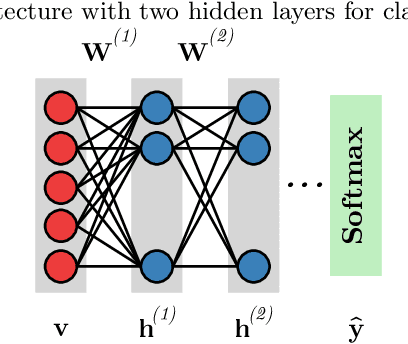
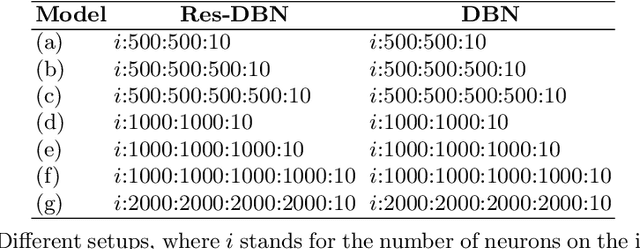
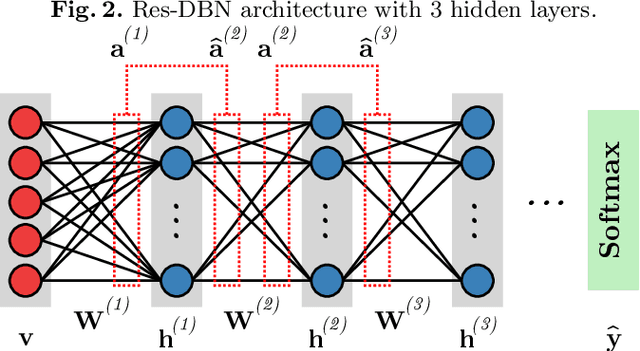
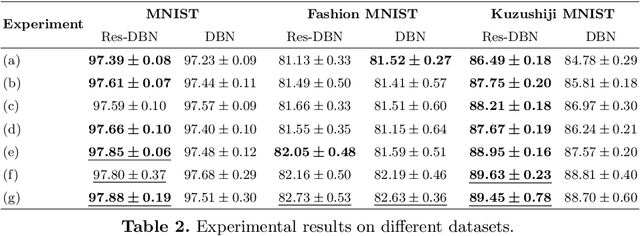
Abstract:With the advent of deep learning, the number of works proposing new methods or improving existent ones has grown exponentially in the last years. In this scenario, "very deep" models were emerging, once they were expected to extract more intrinsic and abstract features while supporting a better performance. However, such models suffer from the gradient vanishing problem, i.e., backpropagation values become too close to zero in their shallower layers, ultimately causing learning to stagnate. Such an issue was overcome in the context of convolution neural networks by creating "shortcut connections" between layers, in a so-called deep residual learning framework. Nonetheless, a very popular deep learning technique called Deep Belief Network still suffers from gradient vanishing when dealing with discriminative tasks. Therefore, this paper proposes the Residual Deep Belief Network, which considers the information reinforcement layer-by-layer to improve the feature extraction and knowledge retaining, that support better discriminative performance. Experiments conducted over three public datasets demonstrate its robustness concerning the task of binary image classification.
Intestinal Parasites Classification Using Deep Belief Networks
Jan 17, 2021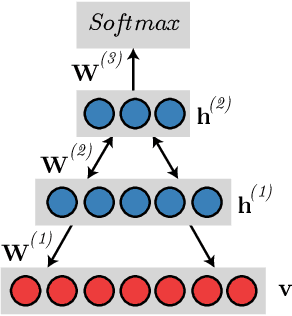
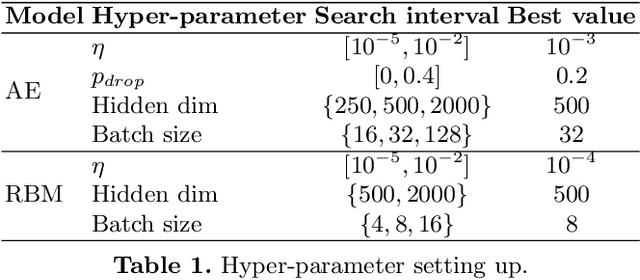
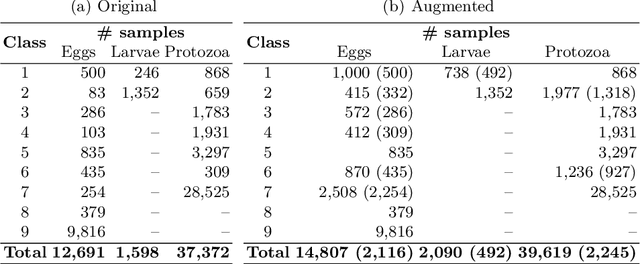
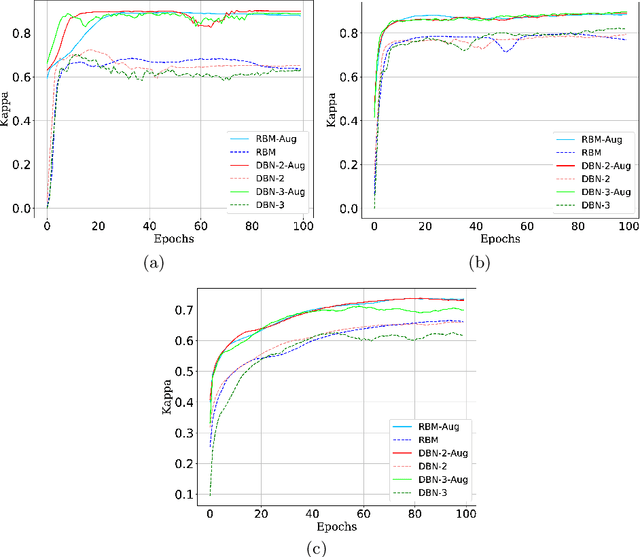
Abstract:Currently, approximately $4$ billion people are infected by intestinal parasites worldwide. Diseases caused by such infections constitute a public health problem in most tropical countries, leading to physical and mental disorders, and even death to children and immunodeficient individuals. Although subjected to high error rates, human visual inspection is still in charge of the vast majority of clinical diagnoses. In the past years, some works addressed intelligent computer-aided intestinal parasites classification, but they usually suffer from misclassification due to similarities between parasites and fecal impurities. In this paper, we introduce Deep Belief Networks to the context of automatic intestinal parasites classification. Experiments conducted over three datasets composed of eggs, larvae, and protozoa provided promising results, even considering unbalanced classes and also fecal impurities.
 Add to Chrome
Add to Chrome Add to Firefox
Add to Firefox Add to Edge
Add to Edge